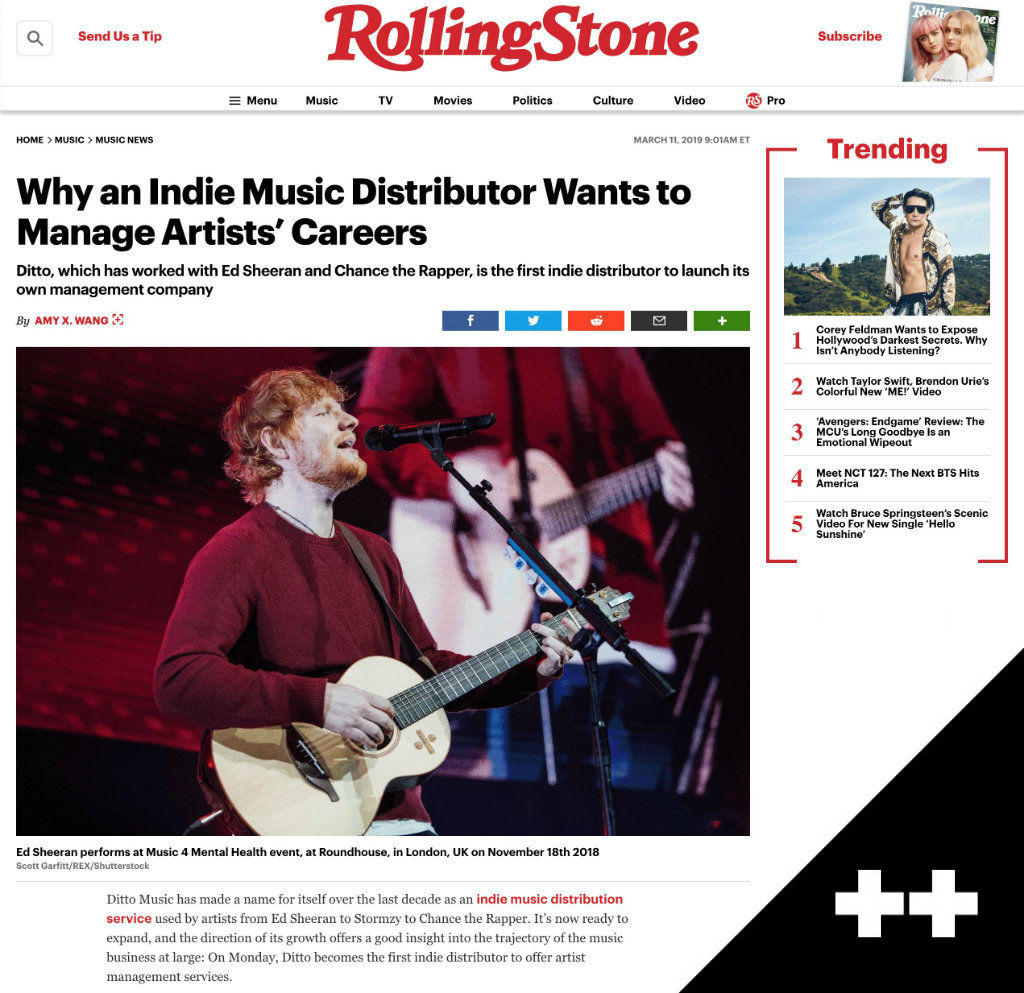Ditto Music Launches Artist Management Company
This article originally appeared in Rolling Stone.
Ditto Music has made a name for itself over the last decade as an indie music distribution service used by artists from Ed Sheeran to Stormzy to Chance the Rapper. It’s now ready to expand, and the direction of its growth offers a good insight into the trajectory of the music business at large: On Monday, Ditto becomes the first indie distributor to offer artist management services.
The U.K.-based company will add Ditto Management as a standalone management firm available to artists around the world, and acts already on the roster include Big Zuu, DJ Nathan Dawe, R&B artist Bobbi Lewis and singer-songwriter Nathan Brooks. Ever since Ditto launched as a distributor in 2006, “there were so many artists that we saw and felt like were an opportunity passing by,” Ditto CEO Lee Parsons tells Rolling Stone, adding that the idea of a management arm has been in the works for several years. “We saw artists coming through who were awesome, but we didn’t have much to do with them apart from distribution. We’d see them take other management deals. But it’s a very different skill to manage artists, so we had to find who I think is the best manager in London.”
His pick is Matt Dodds, formerly an A&R manager at U.K.-based Jem Music Group, who will run Ditto Management — a service that will operate as a separate entity, available but not mandatory for artists who go through Ditto’s core distribution service.
“My vision is that artists will use Ditto to get their music up on Spotify and Apple Music, and we can work with some of them and keep hold of them,” Dodds tells Rolling Stone. “If you have a management company as part of your service, it means you can find those artists, the Ed Sheerans and the Sam Smiths, and nurture them from an early stage.”
The evolution of a music-distribution service into an artist-management one is unusual, but it reflects the status quo in the music industry, which has been rocked by changes in recent years that are not usual in the slightest. As digital streaming services overtake CD sales and downloads as the most popular way people listen to music, the industry is finding itself with its old hierarchy — of record labels at the top and everyone else below — upended. While streaming companies are technically distributors in the way that record shops and the iTunes store are, their playlists’ and algorithms’ incomparable hit-breaking abilities means they hold as much sway these days as the companies that make and release music. Artists, too, are realizing that labels are no longer the sole gatekeepers to success.
A label will give back something like 20 percent of their royalties — so someone like Lil Uzi Vert, who I think made $8 million from one song, will only receive $2 million back after they take out his advance and all the money they spent. What we’ve seen in the last few years is that artists who are signed to record labels are realizing they don’t see much money. There are not many artists signed 10 years ago who have much money now, because the deals were so bad. Artists are looking at independent companies and methods for ways to keep a lot more revenue.
Read the full story on how Ditto Music’s management company will support upcoming, independent artists here on Rolling Stone
